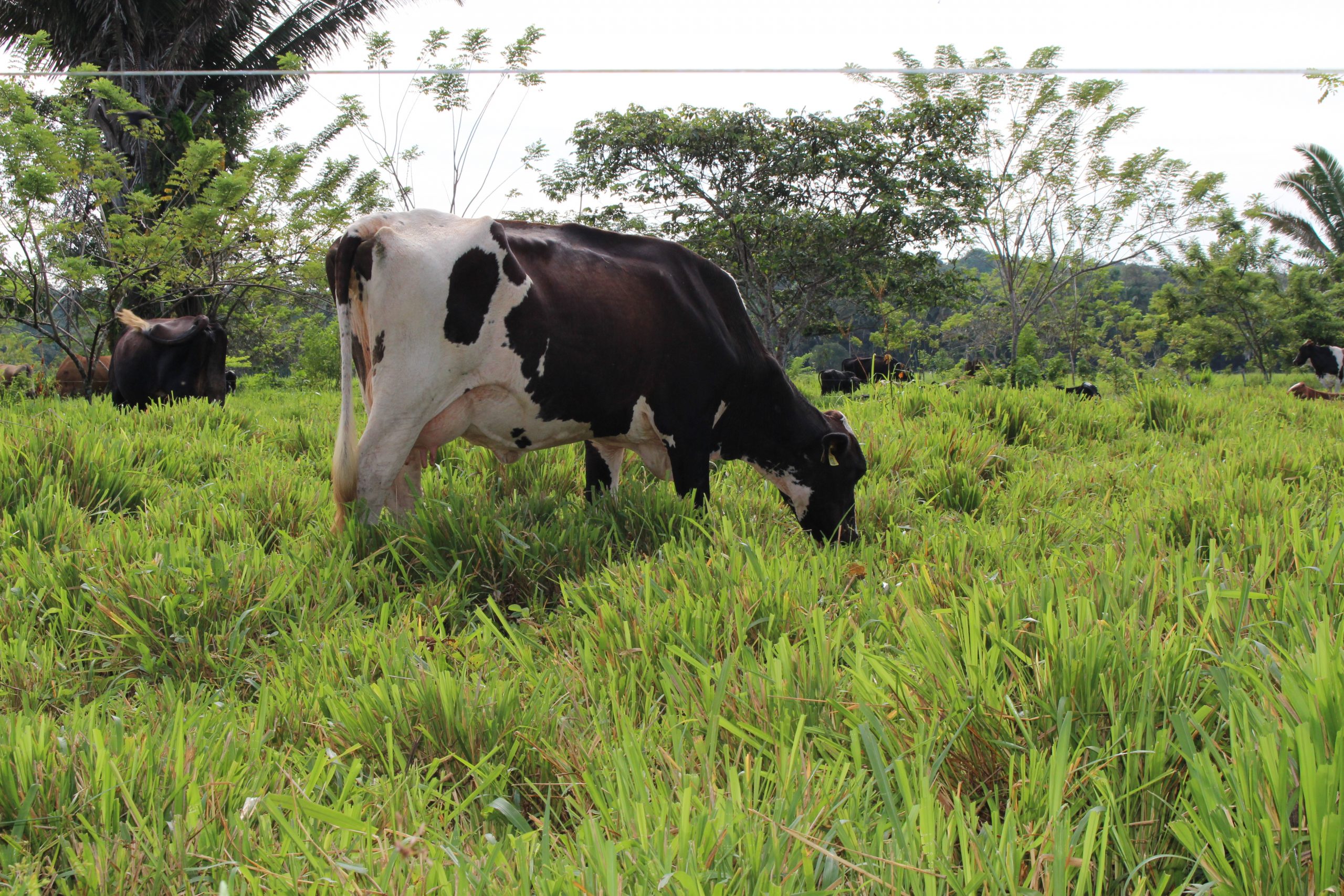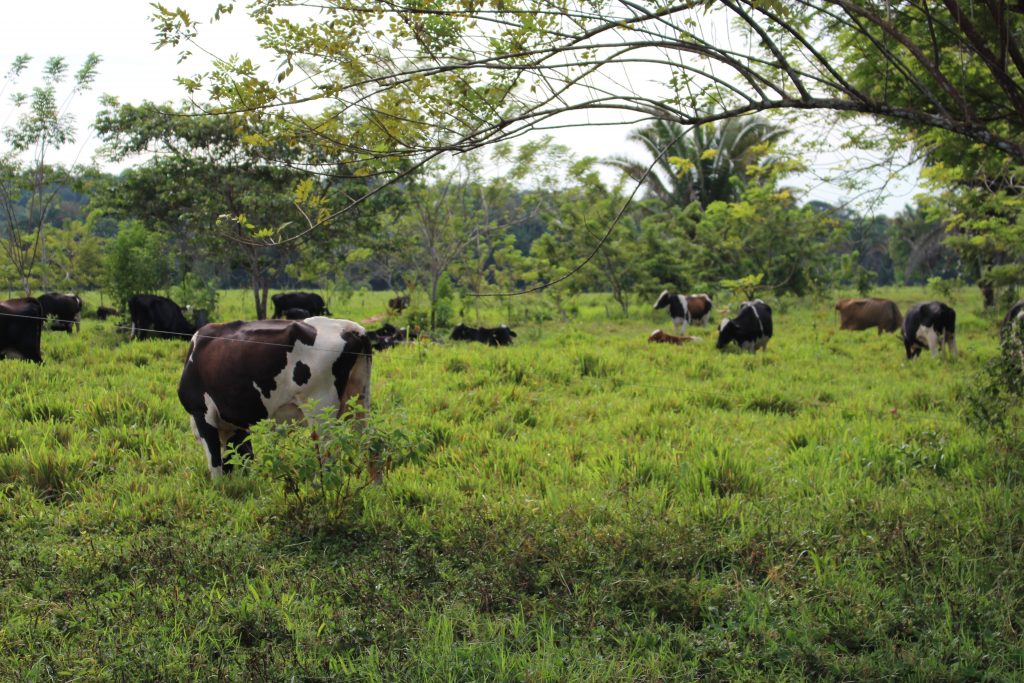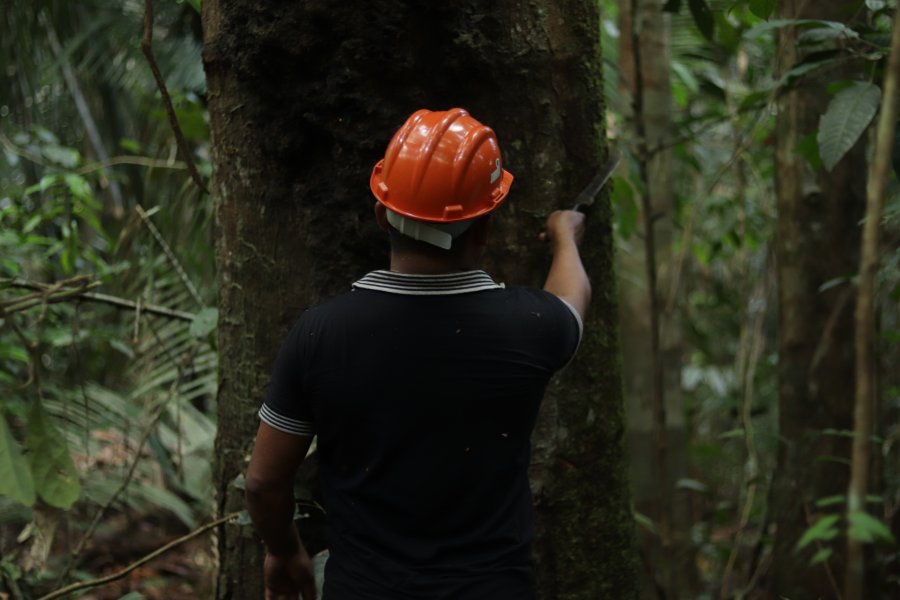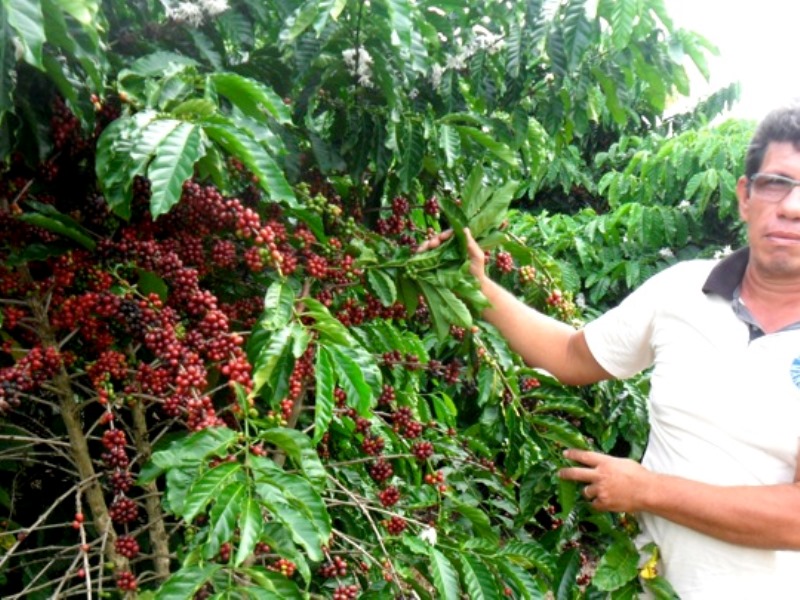
Pecuária de baixo impacto e outras alternativas econômicas sustentáveis para Apuí/AM
Idesam inicia uma série de reportagens sobre as ações que realiza no município de Apuí, onde há mais de 10 anos atua para implementar uma agenda positiva de produção rural sustentável. O instituto tem expandido suas atividades no Sul do Amazonas a cada ano, sempre em iniciativas que visam a conservação de florestas e bem-estar das famílias produtoras da região. Acompanhe também nossas redes sociais para
Por Comunicação Idesam
Foto: Arquivo/Divulgação Idesam
Apuí é um dos municípios localizados no Sul do Estado do Amazonas, região que vem registrando taxas crescentes de desmatamento e queimadas nos últimos anos, com forte atenção da mídia nacional e internacional e atualmente ocupando a segunda posição no ranking dos municípios mais desmatados do Amazonas. Na contramão desta tendência, o Idesam vem atuando no desenvolvimento e apoio de ações no universo da pecuária de base extensiva, como alternativa para conciliar a atividade mais significante do local à conservação das florestas.
Considerada uma das principais atividades responsáveis pela devastação de grandes áreas em Apuí/AM, a pecuária extensiva praticada no bioma amazônico representa forte relação com a degradação ambiental. Com praticamente uma década de atuação para reverter essa tônica do município, o Idesam inicia 2021 com a expansão de importantes atividades na região, incluindo um avanço no reflorestamento de áreas para a produção orgânica de café, o beneficiamento de óleos vegetais e aplicação de técnicas sustentáveis de pecuária.
Mesmo em diferentes áreas, o instituto promove ações integradas com o objetivo de encontrar alternativas de atividades econômicas com menor impacto no meio ambiente. Numa série de matérias que será publicada em seu site oficial, o Idesam reuniu os principais projetos que tem desenvolvido na região. Nesta primeira publicação, o destaque fica para os resultados alcançados nos anos de experiência junto a produtores pecuaristas de Apuí.
Agora encabeçada pela pesquisadora de longa data do instituto, Marina Reia, a equipe da Coordenação Apuí do Idesam é responsável por várias iniciativas que convergem para este objetivo em comum em benefício do município. É neste contexto que importantes projetos tocados na região, como AmazonPEC, Semeando Sustentabilidade e Café em Agrofloresta contribuem até hoje para o desenvolvimento de práticas no campo e do conceito de uma Pecuária Sustentável na Amazônia.
Atualmente, o Idesam trabalha com 07 produtores pecuaristas em Apuí, onde trata diretamente do tema implantando alternativas de produção com menor impacto negativo no meio ambiente e uma presença de campo para acompanhamento técnico dos resultados, inclusive os de viabilidade financeira. Aumentar escala na produção pecuária de menor impacto com técnicas de Sistemas Silvipastoris com Pastejo Rotacional (SSPR) tem sido um dos desafios do programa de Produção Rural Sustentável. Os resultados preliminares são promissores e demonstram que estes sistemas comportam entre 3 a 5 vezes mais animais por hectare que o sistema extensivo.
“O monitoramento das Unidades Demonstrativas com as quais temos acompanhado durante esses anos aponta que as boas práticas de recuperação e manejo da pastagem, como a divisão do pasto em piquetes e inclusão de espécies nativas consorciada, resultaram em um aumento de 4,5 vezes na lotação do pasto por hectare. Além disso, para a produção de leite, o ganho observado pode chegar até 300%, saindo de uma média de 2 mil litros para quase 6 mil litros por hectare, ao ano”, aponta Marina.
Os SSPR também são considerados mais viáveis em relação aos sistemas convencionais. De acordo com Reia, com a entrada de novos parceiros, a perspectiva do instituto é aperfeiçoar o modelo geral de Assistência Técnica e Extensão Rural (ATER) aos produtores para poder expandir os sistemas para mais famílias. “O potencial é gigantesco”, completa a coordenadora.
Experiência no campo
Em Apuí/AM, a pecuária se destaca como a atividade de grande expressão econômica do setor primário, gerando renda e trabalho no município ao mesmo tempo em que o coloca numa situação preocupante nas questões ambientais do Estado. Em 2011, o Projeto Semeando Sustentabilidade foi o pontapé inicial do trabalho do Idesam neste tema, com a instalação das primeiras Unidades Demonstrativas (UDs) de pecuária em sistemas silvipastoris, implantadas inicialmente em quatro fazendas da região.
Na época, este modelo de pecuária, conhecido como manejo rotacional semi-intensivo, apesar de bastante difundido em propriedades do sul e sudeste do Brasil, e mais recentemente no centro-oeste, ainda era pouco utilizado na Região Amazônica.

Responsável por estudos do Idesam relacionados ao tema, o pesquisador Gabriel Carrero reforça que, independente dos desafios, ferramentas como os SSPR são compatíveis com o mercado de carbono, gerando oportunidades para ganho de escala através de mecanismos de REDD+ (Redução das Emissões do Desmatamento e da Degradação Florestal). “Os sistemas silvipastoris têm potencial de recuperar áreas degradadas com reforma de pastagem, plantio de forrageiras e espécies arbóreas, além do manejo rotacional do gado que garante maior tempo de vida útil à pastagem, evitando a abertura de novas áreas de desmatamento”, defende Carrero.
Produtor rural parceiro das iniciativas do instituto na região, Adelário Ronnau, observa como as práticas impactam positivamente na atividade. “Temos em média de 5 a 6 animais por hectare, dentro deste sistema. Por ser um sistema relativamente novo para nós, acho que já é um resultado grande, mas acredito que tem um potencial muito maior. Também fizemos uma análise das nossas áreas e percebemos que a terra já está com uma outra textura, você vê muita matéria orgânica, folhas e galhos transformando a cobertura do solo”, destaca Ronnau.










